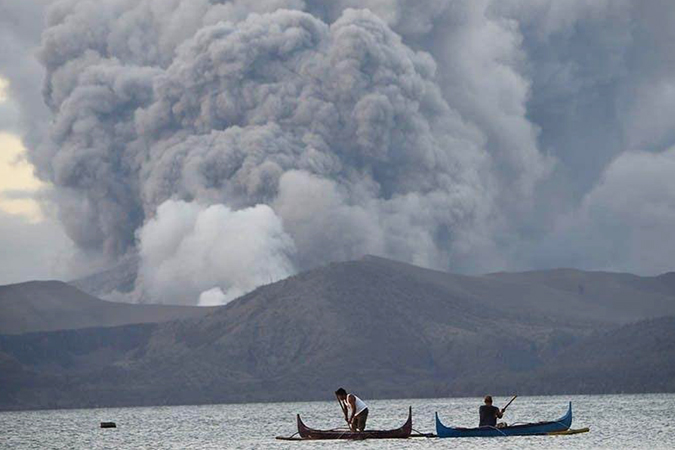
THE National Economic and Development Authority (NEDA) said the damage caused by the Taal Volcano eruption and the typhoons of late 2020 has been estimated at P113.4 billion.
The eruption of Taal Volcano in January 2020 cost the economy at least P8.4 billion in damage to assets as well as foregone income, while the typhoons and resultant flooding in the fourth quarter caused P105 billion in losses, Acting Socioeconomic Planning Secretary Karl Kendrick T. Chua said in a speech Thursday during the launch of the “Ready to Rebuild” program, which aims to help government offices draft better rehabilitation plans.
Losses due to severe natural disasters between 2010 and 2019 were estimated at P463 billion, he said, citing data from the Philippine Statistics Authority.
“These disasters and emergencies have led to billions worth of government resources being spent for cash assistance, rehabilitation and reconstruction efforts which could have been spent for other programs to improve the lives of our fellow citizens and promote more sustainable development,” he said.
Mr. Chua said the most destructive typhoons in recent history were Typhoons Pedring in 2011, Pablo in 2012, Yolanda in 2013, Glenda in 2014, Lando in 2015 and Ompong in 2018.
“NEDA has been working and strongly advocating for more investment in disaster-risk reduction programs. We need to strengthen pre-disaster planning, particularly disaster mitigation and preparedness. Proper planning is key to guiding the recovery efforts and to build more resilient communities to improve structures, services and governance,” he said.
He added proper planning will also help government agencies identify appropriate measures to minimize the impact of natural disasters and assist in determining budgets.
Mitigating, preparing, adapting and responding quickly to natural disasters will result in fewer disruptions to economic activity and provide communities with more safeguards, according to Ndiame Diop, the World Bank’s country director for Brunei, Malaysia, the Philippines and Thailand, speaking at the same forum.
“When disasters happen, it is best not to be caught off guard and with no plans nor financial resources to recover. Local leaders should equip themselves with adequate knowledge and tools to mobilize quickly and provide just in time support to their people,” Mr. Diop said.
Mr. Chua also called on local government units to institutionalize training by next year when they receive a larger share of government revenue in compliance with a Supreme Court ruling, known as the Mandanas case, reworking the revenue-sharing arrangements between the national and local governments. — Beatrice M. Laforga
